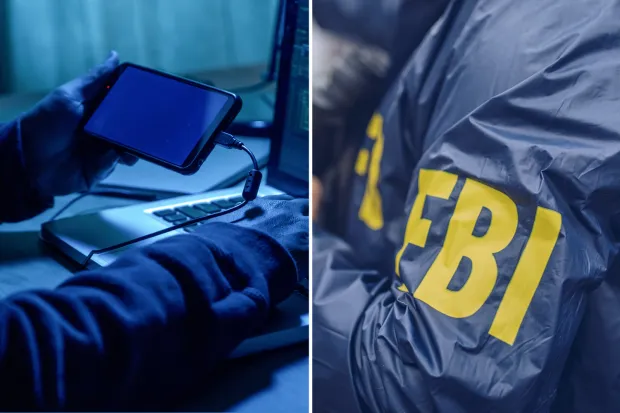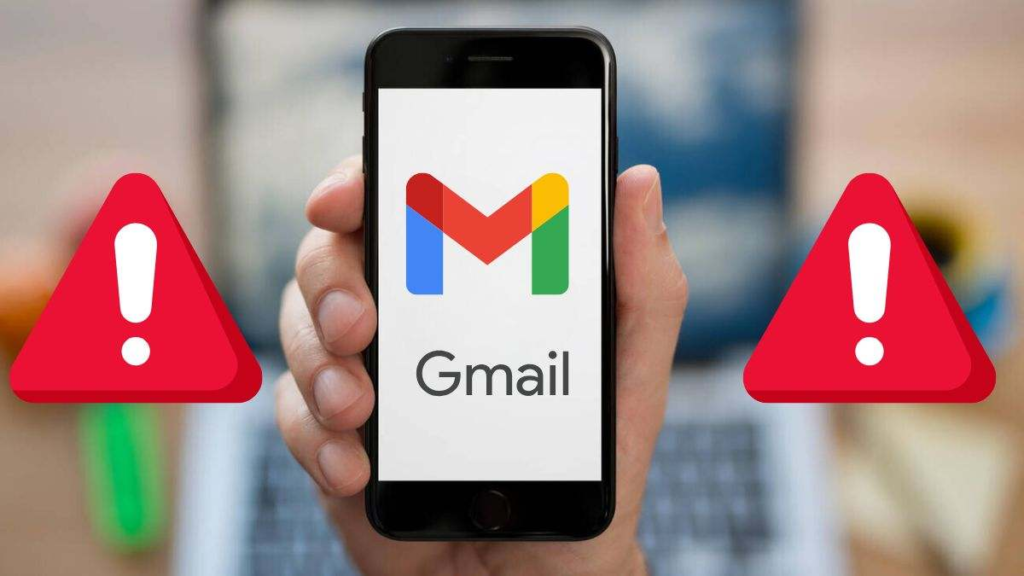The Federal Bureau of Investigation (FBI) and the Cybersecurity and Infrastructure Security Agency (CISA) have issued a joint warning regarding a new and dangerous cyber threat—Medusa ransomware. This ransomware campaign has been targeting Gmail and Outlook users through sophisticated phishing attacks, raising major concerns for individual users and businesses across the globe.

The agencies published a security alert that outlines how cybercriminals are using fake emails and deceptive links to infect devices, steal sensitive data, and demand ransom payments from victims. The Medusa ransomware group, known for its brutal data extortion techniques, is now actively targeting users of major email services, including Gmail and Microsoft Outlook.
“If you use Gmail or Outlook, it’s important to stay alert,” said a CISA official. “These phishing emails may appear real but can lead to devastating consequences.”
What is Medusa Ransomware?
Medusa is a type of ransomware first detected in 2021 and has since evolved into one of the most aggressive cyber threats on the internet. Like other ransomware, it encrypts a victim’s files and demands a ransom—often in cryptocurrency—in exchange for a decryption key. However, Medusa goes a step further by threatening to publicly leak stolen data if the ransom is not paid.
The Medusa ransomware group is infamous for launching targeted attacks on schools, hospitals, tech firms, and now, individual email users. The attackers often give victims a limited time—usually 3 to 5 days—to pay up or face permanent data loss or public exposure.
For more details on ransomware evolution, visit CISA’s official ransomware guide.
How the Attack Works: Phishing is the Gateway

According to the FBI and CISA, Medusa uses phishing emails as the main method to spread the malware. These emails often include:
- Fake job offers
- Bank notifications
- Delivery tracking messages
- Account verification alerts
- Password reset requests
Once a user clicks the malicious link or downloads an infected file (such as a PDF, ZIP, or Word document), the ransomware begins encrypting the system’s data. Users are then shown a ransom note, demanding payment in exchange for data recovery.
The FBI’s cybercrime division warns that even one click on the wrong email can be enough to compromise an entire system.
Why Gmail and Outlook Users Are Prime Targets
Gmail and Outlook are two of the most widely used email services in the world. Millions of people, including employees of large companies and government agencies, rely on these platforms for daily communication. This makes them a goldmine for hackers.
By targeting these services, Medusa ransomware can:
- Gain access to sensitive business and personal information
- Spread malware across contact lists
- Launch broader attacks on organizations
What makes this campaign especially dangerous is how legitimate the phishing emails look. Many include company logos, professional formatting, and even use the correct sender names to fool users into clicking harmful links.
FBI and CISA Recommendations to Stay Safe
To prevent falling victim to the Medusa ransomware, the FBI and CISA have recommended several safety measures for both individuals and organizations:
1. Enable Multi-Factor Authentication (MFA)
Using MFA adds an extra layer of security, even if your password is compromised.
2. Update Your Software Regularly
Ensure your operating system, antivirus software, and all apps are up to date. Hackers often exploit outdated software vulnerabilities.
3. Don’t Click Suspicious Links
Avoid clicking links or downloading attachments in unsolicited emails. Always verify the sender’s identity.
4. Back Up Important Data
Store backups in a secure, offline location. This can help you recover your files without paying a ransom.
5. Use Email Filters and Firewalls
Set up advanced email filtering to detect phishing attempts and malware before they reach your inbox.
For full protection steps, read the FBI’s ransomware defense guide.
What to Do If You’re Infected
If you believe you’ve been infected by Medusa ransomware:
- Do not pay the ransom. There’s no guarantee that attackers will decrypt your data.
- Disconnect from the internet to stop the malware from spreading.
- Report the incident immediately to the FBI at IC3.gov.
- Contact a professional cybersecurity firm to begin recovery and investigation.
Impact So Far
Although the FBI has not released exact numbers, cybersecurity experts believe hundreds of individual Gmail and Outlook accounts have been targeted since the campaign began in early 2025. Several small businesses have also reported data breaches linked to Medusa ransomware.
Security analysts at Cybersecurity Ventures warn that this could be just the beginning, especially as attackers refine their phishing tactics and exploit new vulnerabilities in popular email platforms.
Final Thoughts
The warning from the FBI and CISA highlights a growing trend in cybercrime where hackers target everyday tools—like Gmail and Outlook—to reach a broad audience. With phishing emails becoming more realistic and ransomware growing more destructive, it’s more important than ever to practice cyber hygiene and stay informed.
Even if you consider yourself tech-savvy, never underestimate the power of a well-crafted phishing email. Taking proactive steps today could save you from massive data loss—and financial damage—tomorrow.
For more updates on Medusa ransomware and other cybersecurity threats, stay tuned to CISA’s threat alert portal.
Also Read – Leaving the U.S. With a Green Card? Read This First






